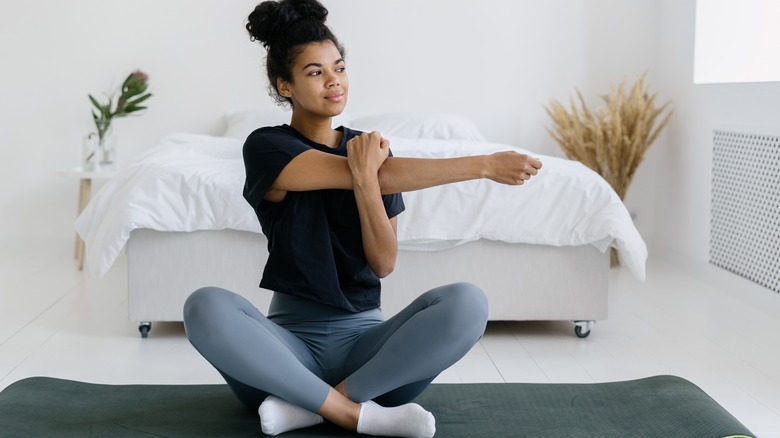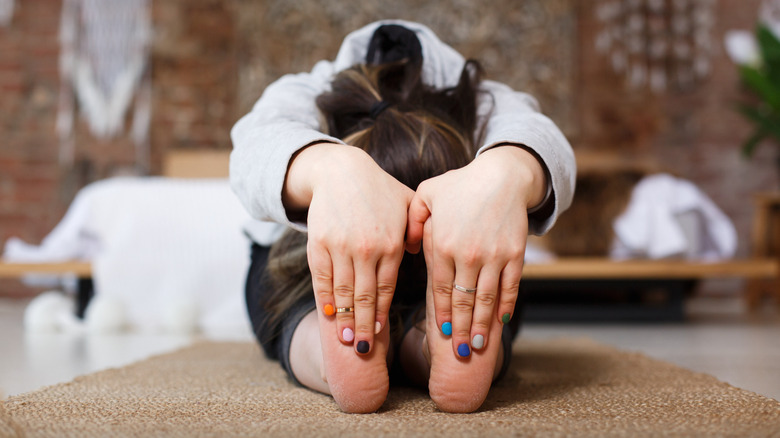When You Stretch Before Bed, This Is What Happens
Your nightly routine before bedtime could make a major impact on your quality of sleep. Avoiding caffeine and not taking your phone under the covers with you are often the most touted recommendations for a better night sleep. So is reading and giving yourself a bed time. Even if you are doing all these things, you could still have trouble getting to sleep. According to Inc, your bedtime routine needs some tweaking if it takes you longer than 30 minutes to fall asleep, or if you notice your quality of sleep is on the decline.
Luckily, you can take action as soon as you notice the signs that your bedtime routine needs a revamp. If warm milk or counting sheep doesn't sound too interesting, you can try stretching before bed. That's right. Stretching isn't only beneficial for yogis and before a workout. According to Medical News Today, stretching at any time of the day can reduce the risk of injury, promote flexibility, and improve circulation. All wonderful benefits for our overall health. And according to Healthline, stretching right before bed can lower your stress levels, help you fall asleep faster, and improve your sleep quality. Why is this? For starters, the simple act of stretching can help you focus on your breathing and become more mindful, which has shown to improve your sleep quality. In addition, stretching your muscles before getting under the covers can help prevent sleep-related muscle cramps.
You don't have to be a master yogi, or even very flexible, to improve your pre-sleep routine
Adapting a new stretching routine before bed can help even those who aren't too physically active during the day. "I tell my patients to compare themselves to someone running a marathon," says Anna Ribaudo, a clinical lead for the Integrative Care Center at HSS. "Your day is like your marathon. It doesn't matter whether you're walking, standing or sitting at a desk, your muscles are being tested. Stretching is a way to relax them so you can rest more comfortably," she says.
In a 2016 study reported via Healthline, it was proven that movements that are a part of tai chi and yoga positively affected the participants' quality of sleep. But you don't have to be a master yogi, or even very flexible, to improve your pre-sleep routine. Remember that stretching before bedtime is a way to relax. It's not a time to push yourself into holding an uncomfortable tree pose, or get your forehead to touch your knees. "The biggest thing to keep in mind when you're stretching is not to push yourself too far," says Ribaudo to HSS. "There may be a bit of discomfort but there should not be pain. You should be able to breathe throughout the stretch," she adds.
A good night's rest is crucial to your health — and attitude. So why not give yourself a little time to stretch and unwind before crawling into bed?


